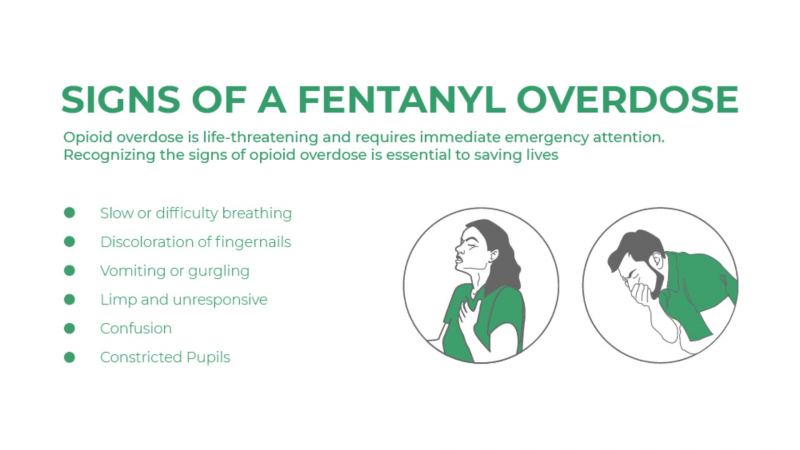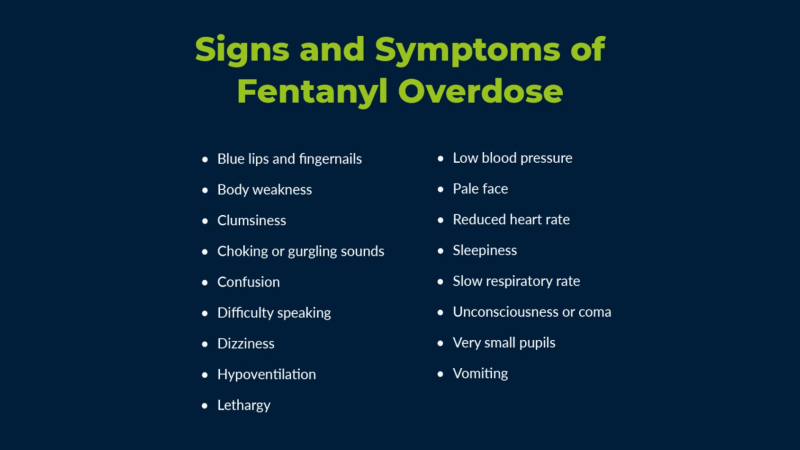Fentanyl overdose

Individuals who are addicted to opioids may use fentanyl as a substitute for heroin. However, it is a very dangerous substitute due to its high potency and people's inability to gauge dosages, resulting in frequent fatal overdoses.
Pure fentanyl powder is also notoriously difficult to dilute properly, frequently resulting in a dangerously potent mixture. Even people with a high opioid tolerance can die from it. Death occurs so quickly in some cases that people are discovered with a needle still in the injection site.
Fentanyl use can result in accidental death even with a single dose, especially if taken incorrectly.
The following are signs and symptoms of a fentanyl overdose:
- slow or shallow breathing
- slow heartbeat
- severe sleepiness
- cold, clammy skin
- trouble walking or talking
- feeling faint, dizzy, or confused
- unresponsiveness
Many fatal overdoses thought to be caused by heroin were actually caused by fentanyl. Even a small dose of fentanyl, such as 2 milligrams, can be fatal, depending on tolerance and body size. Unless given a specific reason, coroners' offices and state crime laboratories do not test for fentanyl or its analogs.
The Food and Drug Administration has issued a warning that people using both the brand-name product Duragesic and generic transdermal fentanyl patches have died or overdosed. It recently issued a warning that children are especially vulnerable to accidental death from exposure.
Treatment
A fentanyl overdose is a medical emergency. Anyone experiencing overdose symptoms should seek medical attention right away. If they do not, they may suffer from hypoxia. This indicates that a person's brain is not receiving enough oxygen. The condition can result in coma or even death.
Overdose is usually treated with naloxone. However, it must be administered as soon as possible. The medication will prevent the fentanyl from acting. However, because fentanyl is so potent, a person may require multiple doses of the drug.









